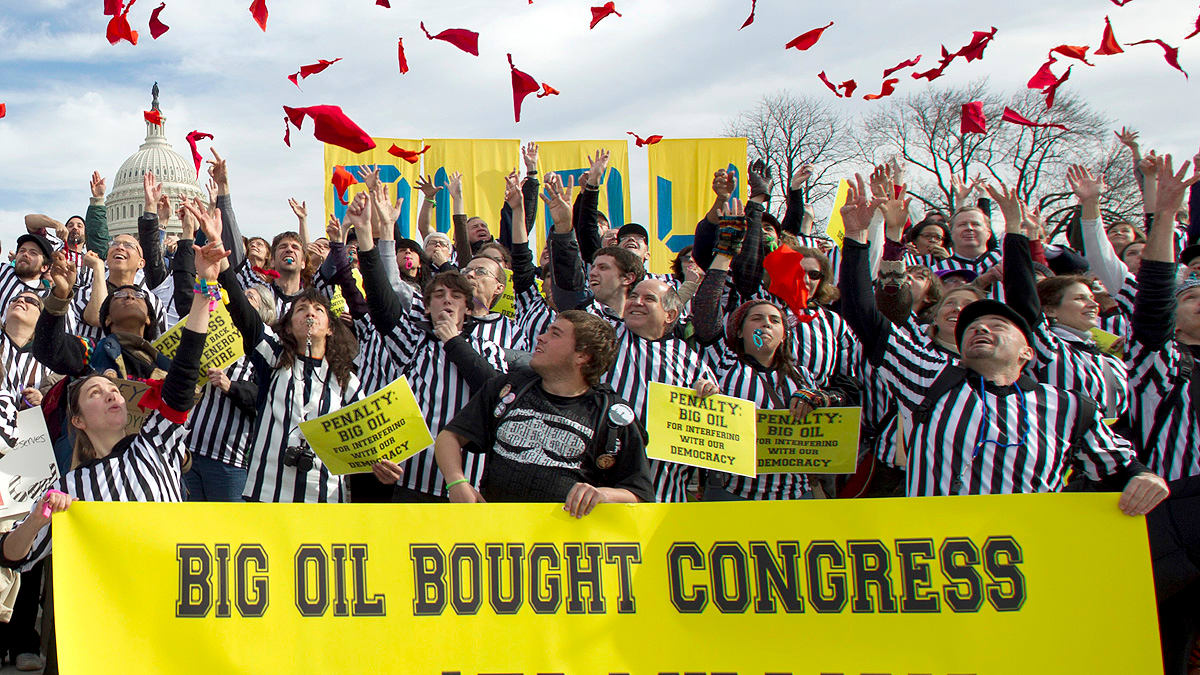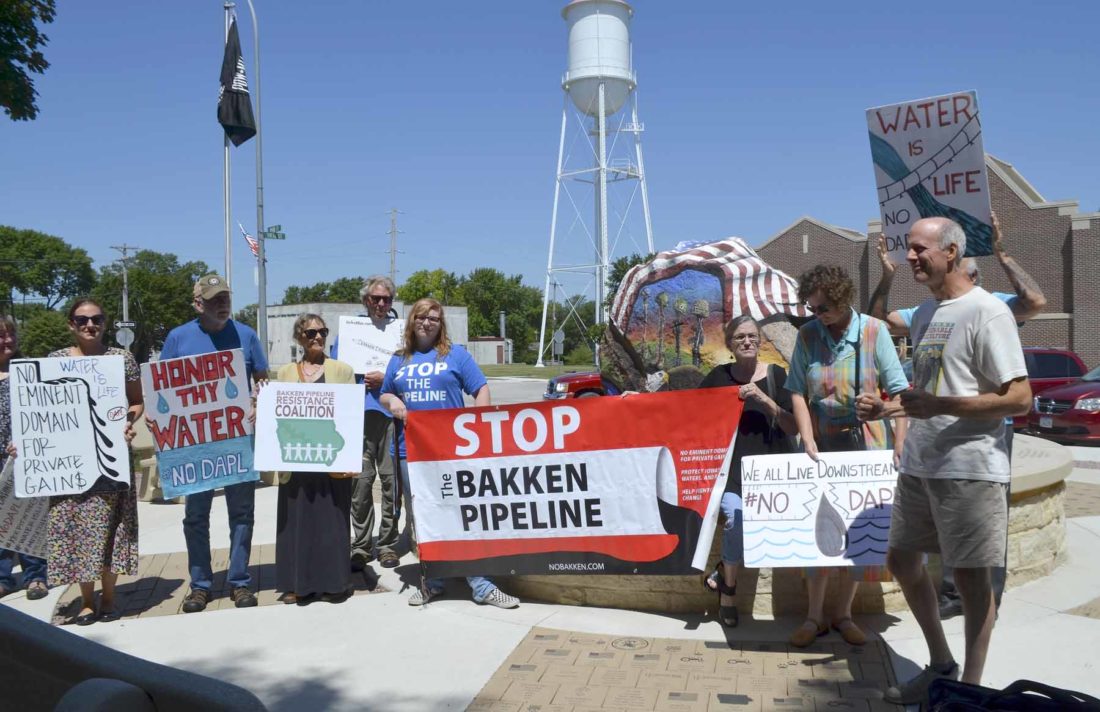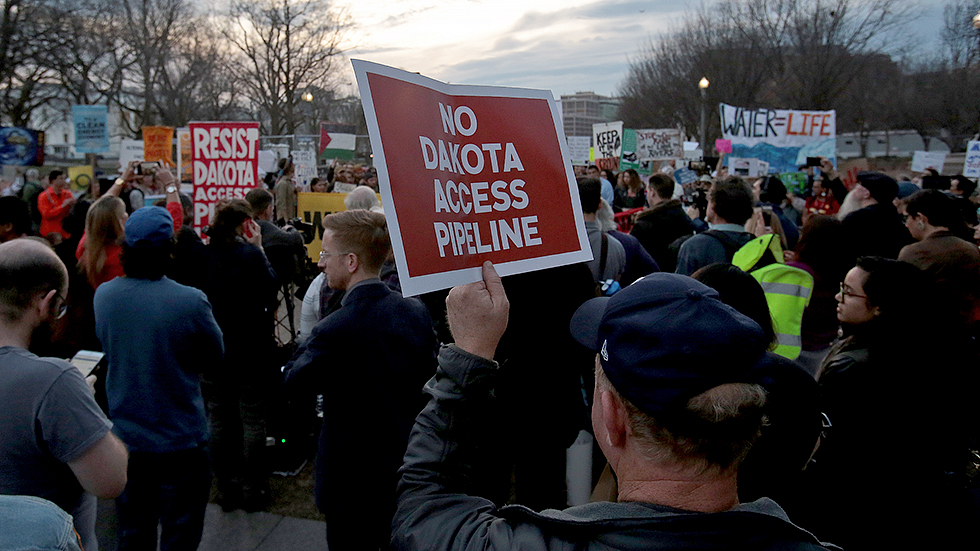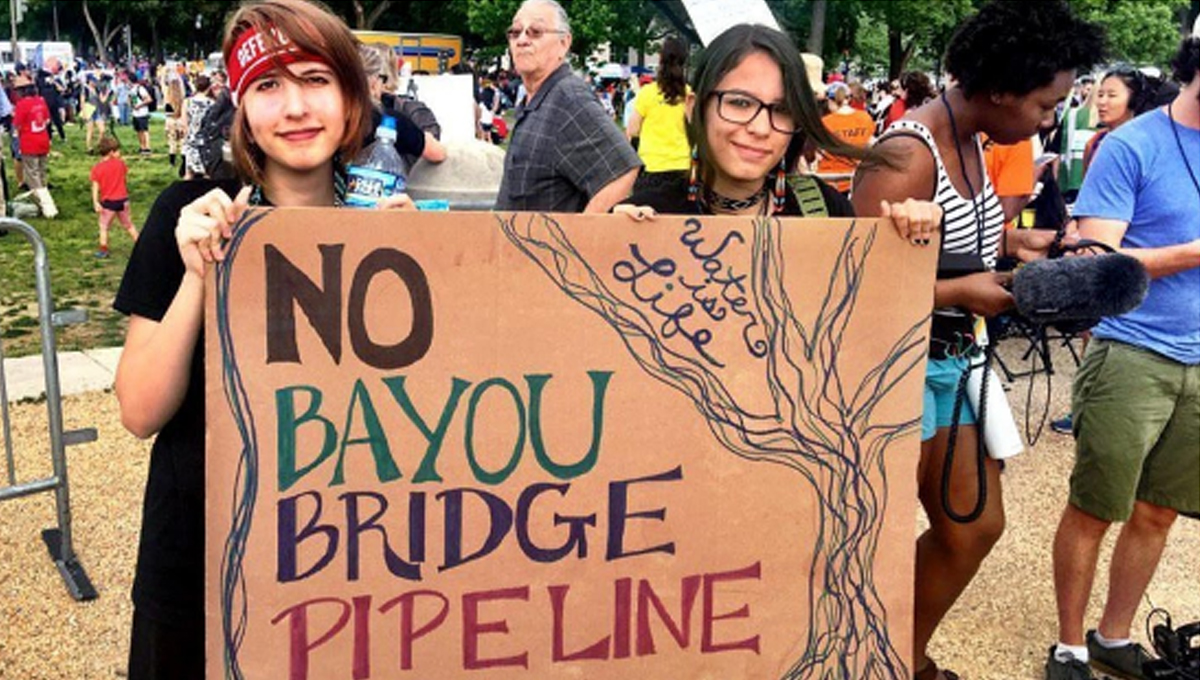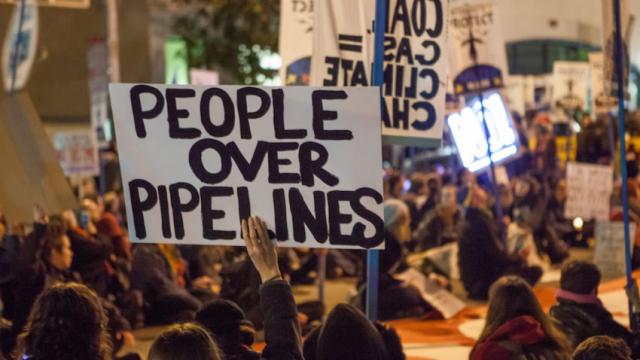
In the aftermath of high-visibility protests against the Dakota Access Pipeline by grassroots organizations and the thousands of individuals seeking to stop its development, states from North Dakota to Louisiana are implementing or introducing legislation to impose stiffer penalties on activists who "disrupt" pipeline construction.
The bills, drafted by the powerful and ultra-conservative American Legislation Exchange Council (ALEC), would translate into harsh penalties for those who trespass or damage anything deemed to be “critical infrastructure” for pipeline construction.
In late 2016 and early 2017, thousands of people took part in protests against the completion of the Dakota Access Pipeline, the most notable being the Sioux people of the Standing Rock Reservation. Protestors argued that the pipeline posed a long-term threat to the environment and an immediate threat to communities living around the Missouri River who used it as a vital drinking and fishing resource.
“The main driving force is to intimidate the resistance rising up against these corrupt projects,” Meg Logue, an anti-pipeline activist, told Occupy.com. In February, Logue was one of three protesters arrested for a sit-in to prevent construction of the Bayou Bridge Pipeline in Louisiana’s Atchafalaya Basin.
In 2017, Oklahoma passed a law that sets a fine of no less than $1,000 and up to six months in jail for simply trespassing on property where pipeline construction is underway. Under this “critical infrastructure law,” those who impede or inhibit operations will face a $10,000 fine and up to a year in jail. In addition, organizations found to be "conspirators" in actions taken by any individuals could face a $100,000 fine.
The Louisiana legislature passed similar legislation in its 2018 session, which ended last month. But this legislation specifically exempts fishermen and striking workers from facing such extreme penalties. In the originally filed bill, there were no specific exemptions and penalties were even harsher than the Oklahoma law.
According to Logue, the current version passed after lobbying by opposition groups. Following her and fellow protestors’ arrests in February, Logue and others were neither fined nor incarcerated. The new Louisiana legislation may not stop future protests, however, and Logue said she is taking a wait-and-see approach. “We are not going to stop resisting this pipeline,” she said.
“Our resistance is non-violent. We’ve never intended to hurt people or damage property.”
Iowa enacted legislation earlier this year making it a felony to damage pipelines. The Dakota Access Pipeline cuts straight across the state, which was also a sight of protests. Last year, two individuals claimed responsibility for damaging the pipeline in Iowa.
Still, opponents contend the harsh new law isn't necessary since there are already strict laws prohibiting vandalism in the state. Opponents are also concerned the law will be used to intimidate and prosecute people involved in peaceful protests.
“This latest attempt by Big Oil to silence dissent is no surprise,” Ed Fallon, director of Bold Iowa and a former state legislator, said in a press release about the bill.
“This is legislative extremism at its worst. The bill’s backers want you to believe this is about cracking down on arson and vandalism. But the hundreds of pipeline protesters who were peaceful, nonviolent and didn’t engage in property destruction could be accused of interrupting service under this bill and subject to insane consequences.”
An ALEC representative testified before the Iowa Senate on behalf of the bill.
Supporters of this new kind of legislation contend there is no cause for concern about those who do not break the law. But since the legislation has only recently been enacted in those states, it remains unclear how the law will ultimately be interpreted and enforced – and how opponents will respond.
The Dakota Access Pipeline is operational, but the Bayou Bridge Pipeline is still being held up by litigation. On April 26, a Louisiana district court ruled that the permit issued for construction violated state law and must be reviewed. Despite the ruling, its construction continues. But plaintiffs last week asked the judge to issue an order halting construction while the defendants appeal.
“We’ve seen a number of incredible successes," said Logue. “We believe we are on the right side of this."

